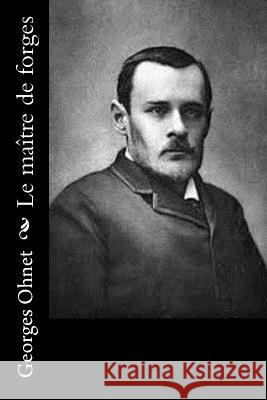Le maître de forges » książka
Le maître de forges
ISBN-13: 9781530454938 / Francuski / Miękka / 2016 / 290 str.
Excerpt from Le Maitre De Forges: Piece En Quatre Actes Et Cinq Tableaux, En Prose
The widowed Marchioness de Beaulieu is at her countryseat, the ancestral residence of her family, with her only daughter, Claire, and her niece, the young Baroness de Prefont. They are discussing the protracted silence of Claire's fiance, Gaston, Duke de Bligny, who holds a post at St. Petersburg; and the Marchioness, with whom the Baroness sympathises, expresses her disapproval of Gaston's neglect. During the conversation, mention is made of Monsieur Derblay, a wealthy and enterprising ironmaster, who had a short time before called at Beaulieu, and whose admiration for Claire had been evident to the Baroness. Octave, the only son of the Marchioness, brings with him Monsieur Bachelin, the confidential family lawyer, and tells his mother that M. Derblay, whose acquaintance he has made while shooting, is about to call and introduce his young sister, Suzanne. The Marchioness learns from Bachelin that an important adjoining estate has been bought by a wealthy chocolate manufacturer who professes to know the Beaulieu family. Claire and the Baroness recognise in the name of Monsieur Moulinet that ot the father of Athenais, a purse-proud girl, with whom they were at school, and whose envy of their rank embittered her against them. When alone with Bachelin, the Marchioness finds that he is the bearer of disastrous news.
About the Publisher
Forgotten Books publishes hundreds of thousands of rare and classic books. Find more at www.forgottenbooks.com
This book is a reproduction of an important historical work. Forgotten Books uses state-of-the-art technology to digitally reconstruct the work, preserving the original format whilst repairing imperfections present in the aged copy. In rare cases, an imperfection in the original, such as a blemish or missing page, may be replicated in our edition. We do, however, repair the vast majority of imperfections successfully; any imperfections that remain are intentionally left to preserve the state of such historical works."
Zawartość książki może nie spełniać oczekiwań – reklamacje nie obejmują treści, która mogła nie być redakcyjnie ani merytorycznie opracowana.











